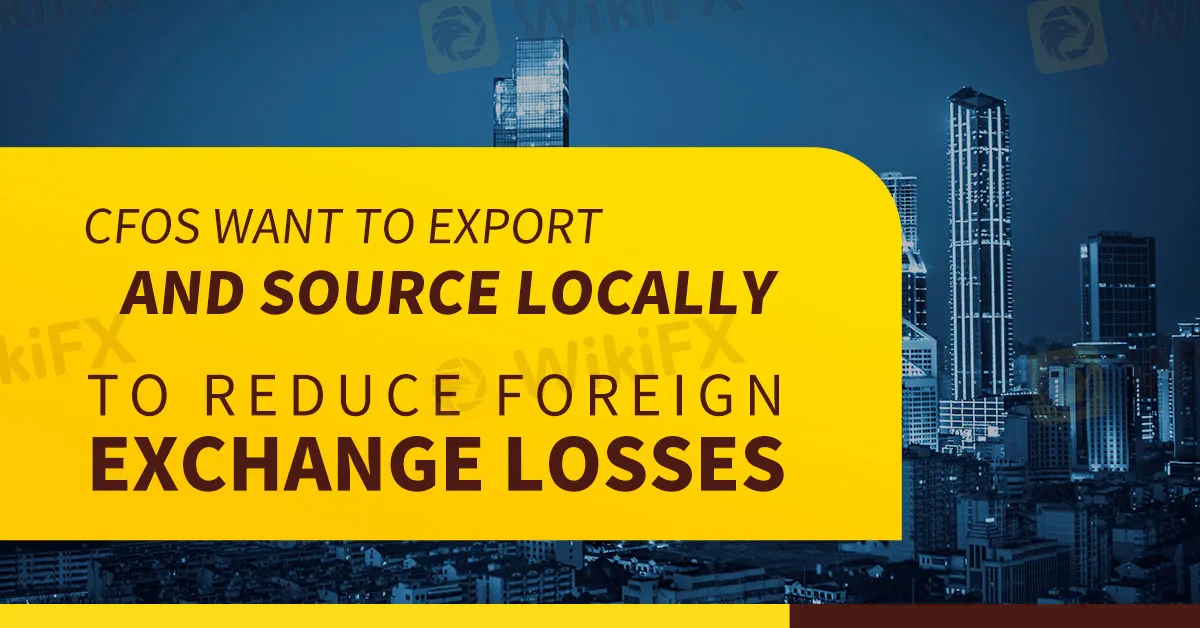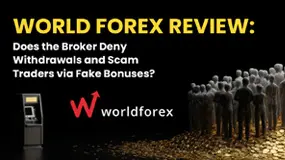简体中文
繁體中文
English
Pусский
日本語
ภาษาไทย
Tiếng Việt
Bahasa Indonesia
Español
हिन्दी
Filippiiniläinen
Français
Deutsch
Português
Türkçe
한국어
العربية
NAIRA DEVALUATION: CFOS WANT TO EXPORT AND SOURCE LOCALLY TO REDUCE FOREIGN EXCHANGE LOSSES
Abstract:Chief financial officers (CFOs) have stated that in order to lessen the impact of the Naira's devaluation on their bottom lines, Nigerian companies will need to enhance their local sourcing of supplies and expand their exports.

Chief financial officers (CFOs) have stated that in order to lessen the impact of the Naira's devaluation on their bottom lines, Nigerian companies will need to enhance their local sourcing of supplies and expand their exports.
At the Lagos Business School CFO Leadership Summit 2024, which had as its theme “The CFO as Strategic Architect - Maximizing the CEO-CFO Synergy,” this topic was covered.
“Diverging into non-FX driven input or output materials is the biggest way for a company to manage its business and mitigate FX risk. ”According to Boye Olusanya, CEO of Flour Mills of Nigeria Plc, “you're either exporting or your input material is local substitutions, and those are hedges you'll continue to see.”
He claimed that significant hedging opportunities from the previous year are no longer accessible due to the decline in the number of officially available alternatives.
Thus, there will be a strong push for a significant export of regional goods. Value-added export is what we should all be aiming for, according to Olusanya.
We are constantly driven to find a more sustainable method of importing raw materials.
And to mitigate import risk and foreign exchange volatility, we have backward integration as a solution.
The willing buyer, willing seller paradigm was reinstated and all FX market sectors were combined under the Investors and Exporters window by the apex bank in June.
The naira had a significant devaluation as a result of the FX system being liberalized as part of efforts to boost the economy.
As of right now, the currency has dropped from N463.38/$ to N1,560.6/$, and the naira has dropped from 762/$ to 1570/$ on the parallel market. Prior to rising, it had fallen to a record low of N1,800/$.
A significant number of large Nigerian enterprises have reported losses for the entire year due to the ongoing reduction in the nation's foreign exchange reserves.
According to Alex Osho Group COO, Waltersmith Group, Nigeria's leadership instruments are insufficient to shield businesses from foreign exchange difficulties.
While you can easily adopt these tools in the US and Europe to counter some of the risk you face in the FX environment, there are limitations to using those tools in Nigeria because there is no liquidity or convertibility to do so, he explained. “We have hedging instruments in Nigeria, but the issue with it is the depth and liquidity of that market.”
Companies that reported losses in the previous year, according to Osho, were largely powerless.
According to him, businesses with a natural hedge typically outperform others because they “naturally hedge their revenue sources match their income sources.” in a way that allows you to exchange dollars for dollars and naira‘s for naira’s.
For this reason, a lot of businesses are trying to find ways to diversify their foreign exchange sources by having an export channel. It's constrained and awkward without that, Osho remarked.
According to him, banks that announced foreign exchange profits had some damage done to their balance sheet; “their loan books have blown up and that has implications for their capital adequacy.”
“Our expectation is that in the long term, there will be a sufficiently liquid market with tools available to us to effectively manage this risk,” stated Osho.
In addition, Wole Adeniyi, CEO of Stanbic IBTC Bank, stated that there are insufficient goods to counteract the devaluation, as stated by Olu Delano, Executive Director of Personal and Private Banking Nigeria.
He stated, “We just have to adjust and keep going, but you have to be able to disclose to the board that the business is exposed to this and what the likely consequences are.”

Disclaimer:
The views in this article only represent the author's personal views, and do not constitute investment advice on this platform. This platform does not guarantee the accuracy, completeness and timeliness of the information in the article, and will not be liable for any loss caused by the use of or reliance on the information in the article.
Read more

World Forex Review: Does the Broker Deny Withdrawals and Scam Traders via Fake Bonuses?
Does World Forex prove to be a not-so-happy trading experience for you? Do you struggle to withdraw your funds from the Saint Vincent and the Grenadines-based forex broker? Do you witness hassles depositing funds? Failing to leverage the World Forex no deposit bonus, as it turned out to be false? These accusations are grabbing everyone’s attention when reading the World Forex review online. In this article, we have shared some of these. Read on!

Voices of the Golden Insight Award Jury | George Georgiou, the Co-Founder of Dynamic Works
WikiFX Golden Insight Award uniting industry forces to build a safe and healthy forex ecosystem, driving industry innovation and sustainable development, launches a new feature series — “Voices of the Golden Insight Awards Jury.” Through in-depth conversations with distinguished judges, this series explores the evolving landscape of the forex industry and the shared mission to promote innovation, ethics, and sustainability.

Is Your Money Safe? The Capital.com Withdrawal Mystery Revealed
Are you trading with Capital.com? You need to read this report immediately. While this broker holds licenses in top jurisdictions, a disturbing pattern has emerged in our complaints center. Ordinary investors are reporting that their accounts are being frozen, withdrawals are being rejected, and—most alarmingly—users are being asked to pay more money just to get their own funds back. This report breaks down the facts, the regulatory cracks, and the stories of victims who are fighting to recover their savings.

【WikiEXPO Global Expert Interviews】Sheikh Muhammad Noman: The Future of Investment in the GCC
As WikiEXPO Dubai concludes successfully, we had the pleasure of interviewing Sheikh Muhammad Noman, the Founder and CEO of Pegasus Capital, brings over 20 years of profound expertise as an Investment Professional. He specializes in investment securities, risk calculations, financial engineering, and structuring business models with minimal risk. As a Founder and Business Development Partner, he oversees diversified investment and business portfolios for leading family offices throughout the GCC region, with a focus on sectors such as green energy, digital assets, and finance. His deep understanding of financial markets has been instrumental in crafting strategic investment solutions that significantly enhance portfolio performance.
WikiFX Broker
Latest News
Simulated Trading Competition Experience Sharing
WinproFx Regulation: A Complete Guide to Its Licensing and Safety for Traders
Interactive Brokers Expands Access to Taipei Exchange
Axi Review: A Data-Driven Analysis for Experienced Traders
INZO Regulation and Risk Assessment: A Data-Driven Analysis for Traders
Cleveland Fed's Hammack supports keeping rates around current 'barely restrictive' level
Delayed September report shows U.S. added 119,000 jobs, more than expected; unemployment rate at 4.4%
The CMIA Capital Partners Scam That Cost a Remisier Almost Half a Million
eToro Cash ISA Launch Shakes UK Savings Market
Is Seaprimecapitals Regulated? A Complete Look at Its Safety and How It Works
Currency Calculator



